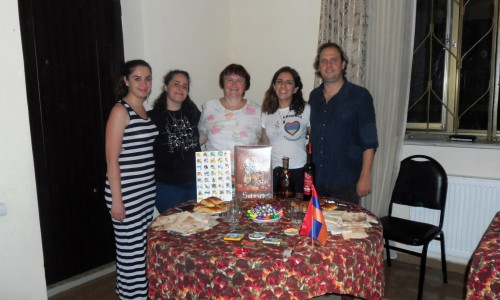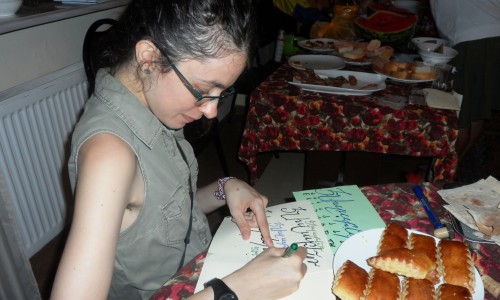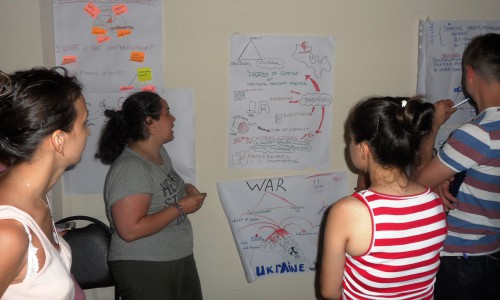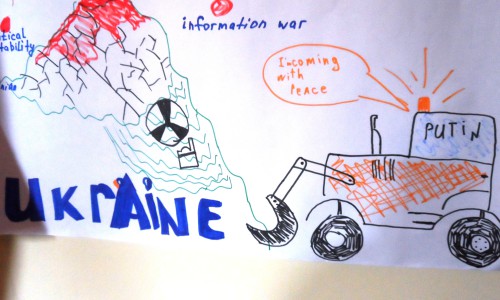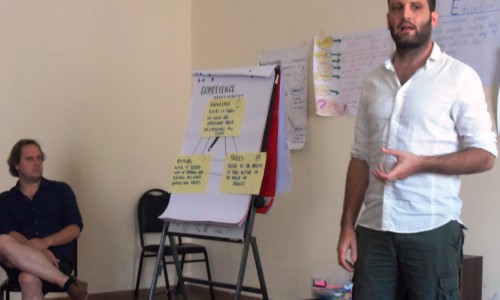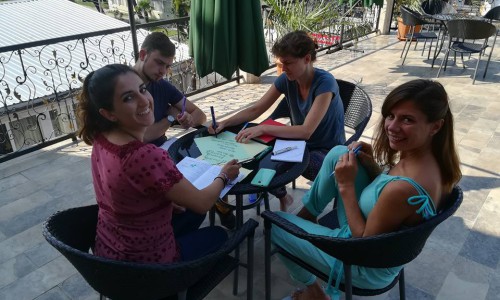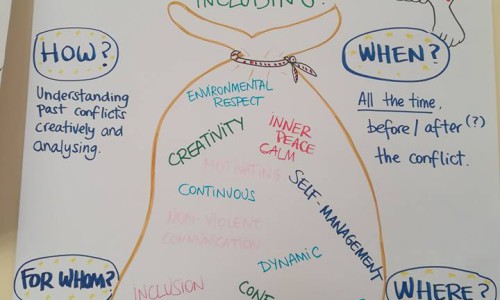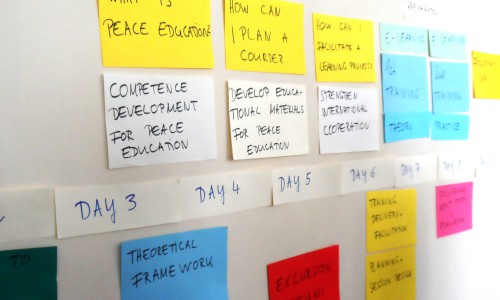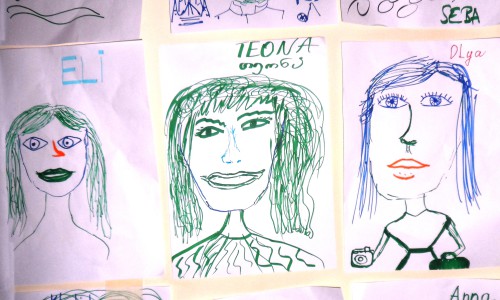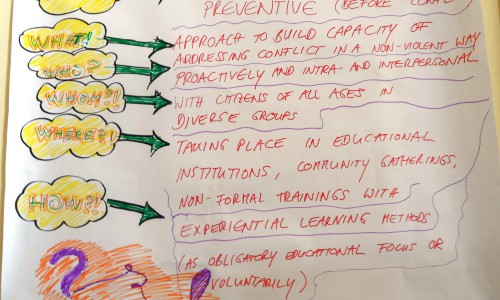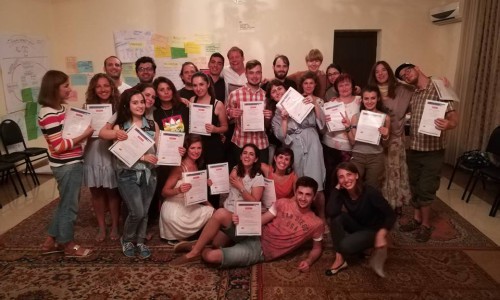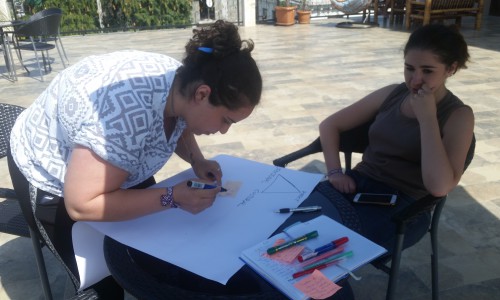‘Training Laboratory: Designing Learning for Peace’ peace-building training series launched
17:27, October 9, 2017 | News, Own news“I truly believe the only way we can create global peace is through educating not only our minds, but our hearts and our souls.”
Malala Yousafzai
Since its establishment, Helsinki Citizens’ Assembly-Vanadzor had peace-building among the essential areas of its activity. Based on the principle that there cannot be any alternative to peaceful settlement of conflicts, the Organization regularly initiates and carries out peace-building trainings and actively cooperates with international peace organizations.
As a result of cooperation with Germany-based European Intercultural Forum and Georgia-based Academy for Peace and Development, a next-in-time peace-building training was organized within ‘Training Laboratory: Designing Learning for Peace’ program and is currently in progress. The program started in August 2017 and will be carried out by March 2018.
The training organized within European Union Erasmus + Program aims to reduce extremism in Europe and neighboring countries by strengthening and improving the skills of youth organizations in peace education as well as assist young trainers in designing and conducting in their region peace-building trainings and seminars to reduce extremism.
The training consists of 4 stages, 2 of which are conducted online and 2 through meetings with each other; the 1st online training and the 1st seminar and training were already held.
After the 1st online training held in August 2017, 22 young people involved in the program from 5 European countries namely Spain, Netherlands, Germany, Latvia, Ukraine and 3 South Caucasus countries: Armenia, Georgia and Azerbaijan took part on September 11-19 in the 1st seminar and training of the educational program in Georgia.
3 representatives of HCAV, Anahit Mkhitaryan, Ani Maloyan and Mane Marukyan, took part in the program.
Brief description of the training course
The 1st part of the 8-day training course aimed to help the participants and trainers know each other better, strengthen their mutual trust and introduce the goals and course of the training by creating a warmer climate for working together.
At the start of the training course, each participant presented their expectations of the course in terms of gaining skills and playing their own role in the training and peace education. Then at the end of each day of theoretical and practical trainings, group and team discussions, games and exercises, the participants got through group response more fundamental knowledge on peace, conflict and violence, peace education, radicalism and extremism and the skills trainers need.
During the work process, representatives of the participant countries developed and illustrated the current issues/conflicts in their countries and the role of young people in their settlement. The participants not only touched upon the issues in their environment but also got to know the socio-political realities in other countries.
The last 2 days of the training course mostly aimed at differentiating among peace at 3 levels: inner peace, social peace and peaceful coexistence with the environment. Based on the above, 2 groups were separated: peace on a personal level (inner peace) and peace-building.
On preference of the participants, 2 teams with 11 participants and 1 trainer were set up. It is planned that during the following online training and seminar training, each team will design and carry out a short-term training to develop young people’s inner peace and behavioral elements against extremism and radicalism. Each team prepared its training plan and stages in sequence.

